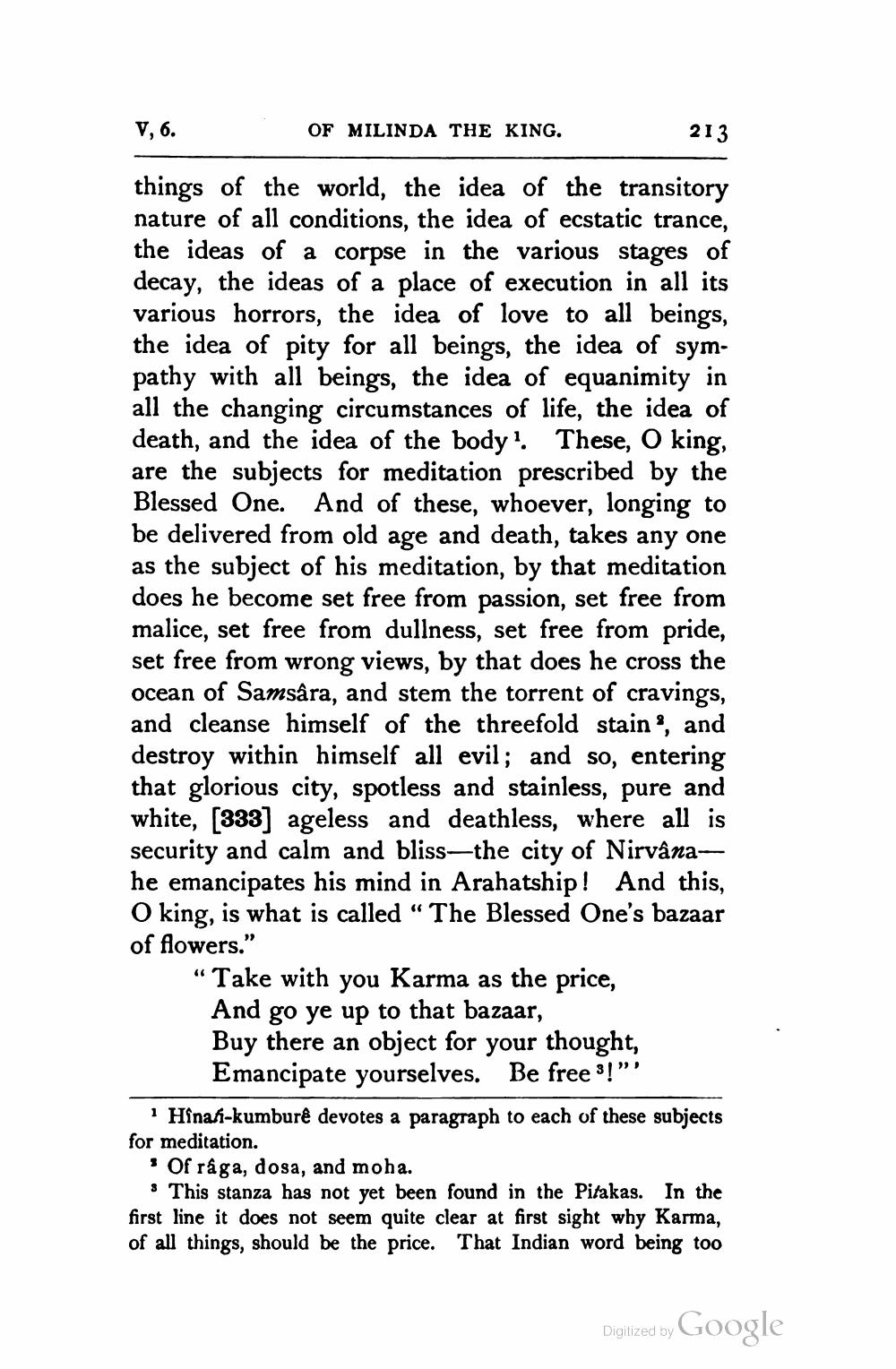________________
V, 6.
OF MILINDA THE KING.
213
things of the world, the idea of the transitory nature of all conditions, the idea of ecstatic trance, the ideas of a corpse in the various stages of decay, the ideas of a place of execution in all its various horrors, the idea of love to all beings, the idea of pity for all beings, the idea of sympathy with all beings, the idea of equanimity in all the changing circumstances of life, the idea of death, and the idea of the body'. These, O king, are the subjects for meditation prescribed by the Blessed One. And of these, whoever, longing to be delivered from old age and death, takes any one as the subject of his meditation, by that meditation does he become set free from passion, set free from malice, set free from dullness, set free from pride, set free from wrong views, by that does he cross the ocean of Samsara, and stem the torrent of cravings, and cleanse himself of the threefold stain, and destroy within himself all evil; and so, entering that glorious city, spotless and stainless, pure and white, [333] ageless and deathless, where all is security and calm and bliss—the city of Nirvanahe emancipates his mind in Arahatship! And this, O king, is what is called “The Blessed One's bazaar of flowers.”
"Take with you Karma as the price,
And go ye up to that bazaar, Buy there an object for your thought,
Emancipate yourselves. Be frees!” Hinat-kumburê devotes a paragraph to each of these subjects for meditation. s of raga, dosa, and moha.
This stanza has not yet been found in the Pitakas. In the first line it does not seem quite clear at first sight why Karma, of all things, should be the price. That Indian word being too
Digitized by Google




